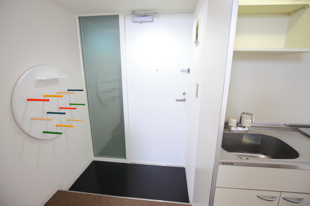Contacting Home
Below are some suggested ways that you can easily stay in touch with your family and friends while studying abroad.
We recommend setting up a contact plan before you depart, deciding how and when you’ll be available while abroad. Whether you prefer daily, weekly, biweekly, or monthly check-ins, it’s good to have a consistent way to get in touch, as well as back-up alternatives in case of an emergency. While studying abroad can be a time to spread your wings and become more independent, it’s important to regularly touch base with your loved ones so they don’t worry while you’re away.
No matter which method you choose, we recommend downloading your preferred applications before leaving home and testing them out to make sure any accounts and contacts are set up properly.
Local SIM Card
Your Resident Director can help you purchase a SIM card that can be used for calls, texting, and data. Phone plans vary depending on location, and more details will be provided by your Program Manager. It is recommended to only use your U.S. phone number to call home in cases of emergency since long distance calls can be expensive. There are plenty of other ways to call internationally for free or very cheap (keep reading!).
Unlocking your Phone
In order to use the local SIM card, you need to make sure your phone is unlocked and able to accept SIM cards from other mobile carriers. “Unlocking” your phone means that your phone is not locked to one specific carrier. If your phone is unlocked, you will be able to use a foreign SIM card while you are abroad. If you’re unsure if your phone is unlocked, it’s important to call your current service provider to check. If you cannot get your current phone unlocked, you will need to bring a different unlocked phone from home or plan to purchase a phone while in your host country.
International Phone Plan
If you don’t want to purchase a SIM card, you can keep your U.S. number and opt for an international phone plan. In most cases, this allows students to utilize their phone domestically in their host country and internationally. The cost of this can vary based on service provider. If you are interested in this option, you should get in touch with your phone service provider to obtain the relevant fees and service options. Be sure to consider costs for dialing local numbers, as it can sometimes make an international plan undesirable for calls within your host country.
Purchasing a Phone in Country
Purchasing a phone in Japan is a viable option if you do not want to or cannot use your current U.S. phone. Reasonably inexpensive phones can be purchased in all locations for costs anywhere from $40 to $100 depending on quality This may be a good option for a student who is looking to use a phone for just texting and calling while in country, as non-smart phones can be purchased cheaply in most countries. If you are worried about losing your U.S. smartphone, you may want to consider purchasing an inexpensive phone in your host country.
Free International Contact Options
While all students will have access to a local number, there are free ways to get in touch with people around the world while connected to the internet or data.
Line
LINE is a popular communications app used in Japan. You’ll use this to text and call friends, your Resident Director, and can even contact friends and family back home who have the app. We strongly recommend downloading LINE prior to arriving in Japan!
Skype
Skype allows free chat, audio calling, and video calling between users while using WiFi or data. This allows for calls between two parties both using the Skype app. The Skype app can be downloaded onto your phone, tablet, and computer. You can also purchase Skype credit, which allows you to call international landline and mobile phone numbers directly (so both parties don’t need Skype accounts). These calls typically cost around $.05 for the connection and $.03 per minute, making it an affordable option.
Facebook Messenger
Facebook’s Messenger app allows free chat, audio calling, and video calling between users while on WiFi or data.
iMessage
While we don’t suggest going out of your way to purchase an iPhone for this option, it is a great feature for students who have these phones already. iPhones use iMessage and FaceTime while on WiFi or data at zero charge to the provider plan.
Other free messaging apps
You probably already know or use WhatsApp, which allows free chat, audio calling and video calling between users while on WiFi or data. WhatsApp is popular outside of the U.S. as well.
Email
It may seem obvious, but email is a great way to continue to stay in touch with people back home regardless of the time differences. If your host institution gives you a new school email, but sure to update friends and family with the email address you will be checking most frequently throughout your program.
Internet services
Internet services will vary for those students living in university managed accommodations, but all students will have access to internet services in their accommodations and on campus at their host universities.










